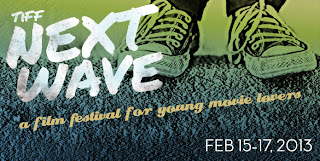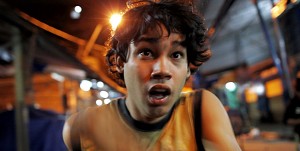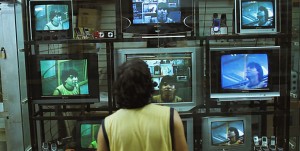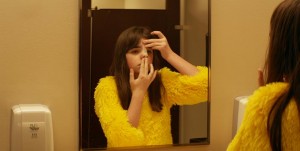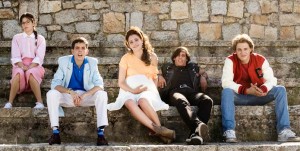Like it or not, the movie awards season is upon us.
And as part of the first step, film critics groups from around the country have started to announce their picks for the best achievements in cinema in 2012. And the chosen are starting to be anointed. The National Board of Review selections started things going with a strong showing for Zero Dark Thirty. The film received another pat on the back from the New York Film Critics Circle selections. Most recently the Los Angeles Film Critics Association awarded the Michael Haneke film Amour with the top prize, combined with a surprisingly strong showing for The Master in other categories.
Closer home, the San Diego Film Critics Society announced its list of nominations in the major categories today. The society members (which includes the Moviewallas outlet) will cast their vote on December 11th, shortly after which the final picks will be announced. Below is the full list of nominations. Which nominated picks are you happy to see here, and which ones were criminally overlooked?
BEST FILM
ARGO
DJANGO UNCHAINED
SILVER LININGS PLAYBOOK
THE MASTER
ZERO DARK THIRTY
BEST DIRECTOR
Ang Lee, LIFE OF PI
Ben Affleck, ARGO
David O. Russell, SILVER LININGS PLAYBOOK
Kathryn Bigelow, ZERO DARK THIRTY
Paul Thomas Anderson, THE MASTER
BEST ACTRESS
Helen Hunt, THE SESSIONS
Jennifer Lawrence, SILVER LININGS PLAYBOOK
Jessica Chastain, ZERO DARK THIRTY
Michelle Williams, TAKE THIS WALTZ
Naomi Watts, THE IMPOSSIBLE
BEST ACTOR
Bradley Cooper, SILVER LININGS PLAYBOOK
Daniel Day-Lewis, LINCOLN
Hugh Jackman, LES MISERABLES
Joaquin Phoenix, THE MASTER
John Hawkes, THE SESSIONS
BEST SUPPORTING ACTRESS
Amy Adams, THE MASTER
Anne Hathaway, LES MISERABLES
Emma Watson, THE PERKS OF BEING A WALLFLOWER
Rebel Wilson, PITCH PERFECT
Samantha Barks, LES MISERABLES
BEST SUPPORTING ACTOR
Alan Arkin, ARGO
Christoph Waltz, DJANGO UNCHAINED
Christopher Walken, SEVEN PSYCHOPATHS
Matthew McConaughey, KILLER JOE
Philip Seymour Hoffman, THE MASTER
BEST ORIGINAL SCREENPLAY
Quentin Tarantino, DJANGO UNCHAINED
Wes Anderson and Roman Coppola, MOONRISE KINGDOM
Sarah Polley, TAKE THIS WALTZ
Joss Whedon and Drew Godard, THE CABIN IN THE WOODS
Paul Thomas Anderson, THE MASTER
BEST ADAPTED SCREENPLAY
Chris Terrio, ARGO
David Magee, LIFE OF PI
Tony Kushner, LINCOLN
David O. Russell, SILVER LININGS PLAYBOOK
Stephen Chbosky, THE PERKS OF BEING A WALLFLOWER
BEST FOREIGN LANGUAGE FILM
AMOUR
HEADHUNTERS
HOLY MOTORS
THE INTOUCHABLES
THE KID WITH A BIKE
BEST DOCUMENTARY
BULLY
JIRO DREAMS OF SUSHI
QUEEN OF VERSAILLES
SAMSARA
THE INVISIBLE WAR
BEST CINEMATOGRAPHY
Ben Richardson, BEASTS OF THE SOUTHERN WILD
Robert Richardson, DJANGO UNCHAINED
Danny Cohen, LES MISERABLES
Claudio Miranda, LIFE OF PI
Mihai Malaimare Jr., THE MASTER
BEST ANIMATED FILM
BRAVE
FRANKIEWEENIE
PARANORMAN
RISE OF THE GUARDIANS
WRECK-IT RALPH
BEST EDITING
William Goldenberg, ARGO
Brian A. Kates and John Paul Horstmann, KILLING THEM SOFTLY
Tim Squyres, LIFE OF PI
Leslie Jones and Peter McNulty, THE MASTER
William Goldenberg and Dylan Tichenor, ZERO DARK THIRTY
BEST PRODUCTION DESIGN
Sarah Greenwood, ANNA KARENINA
Sharon Seymour, ARGO
Hugh Bateup and Uli Hanisch, CLOUD ATLAS
Eve Stewart, LES MISERABLES
Adam Stockhausen, MOONRISE KINGDOM
BEST SCORE
Alexandre Desplat, ARGO
Benh Zeitlin and Dan Romer, BEASTS OF THE SOUTHERN WILD
Mychael Danna, LIFE OF PI
Alexandre Desplat, MOONRISE KINGDOM
Jonny Greenwood, THE MASTER
BEST ENSEMBLE PERFORMANCE
ARGO
DJANGO UNCHAINED
LES MISERABLES
SEVEN PSYCHOPATHS
THE PERKS OF BEING A WALLFLOWER

